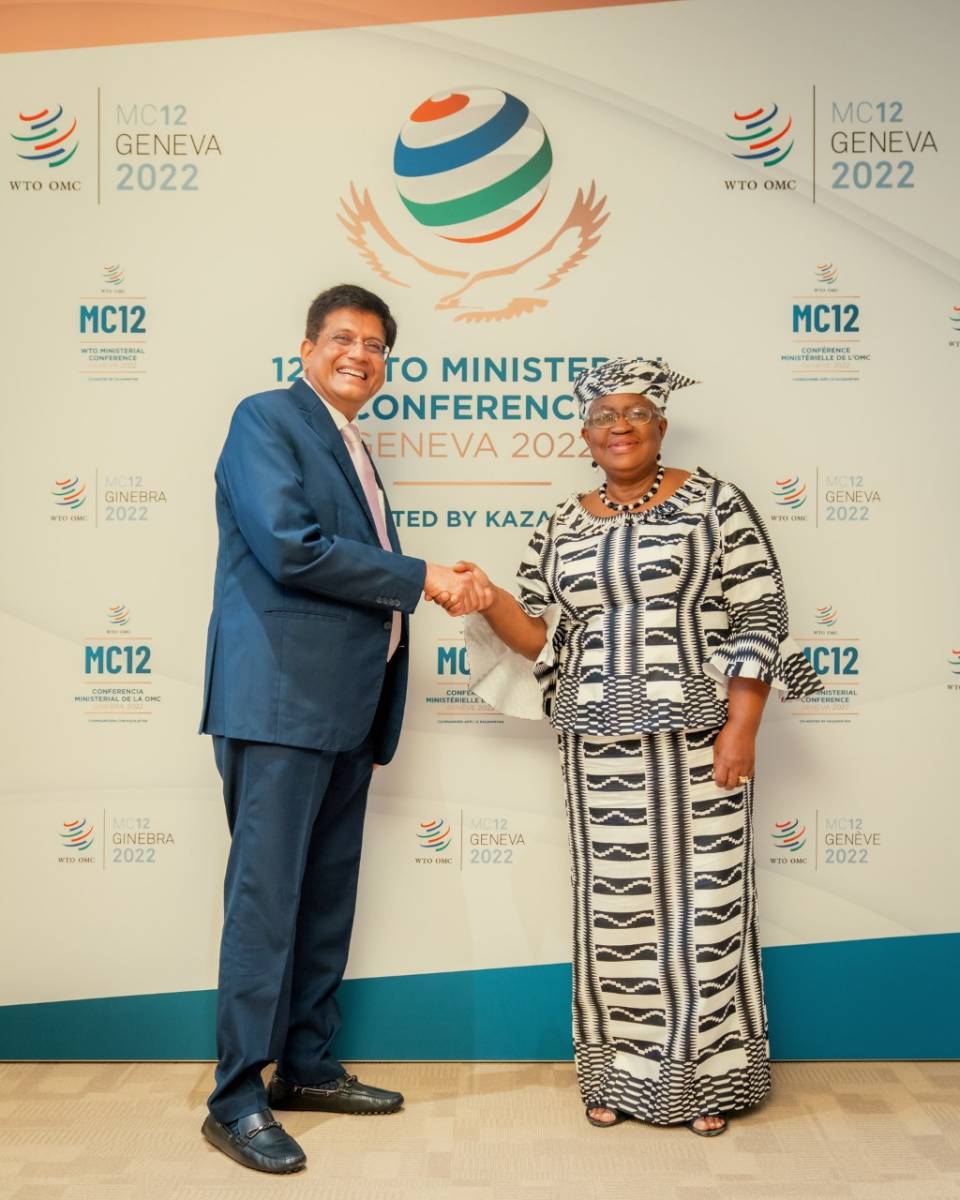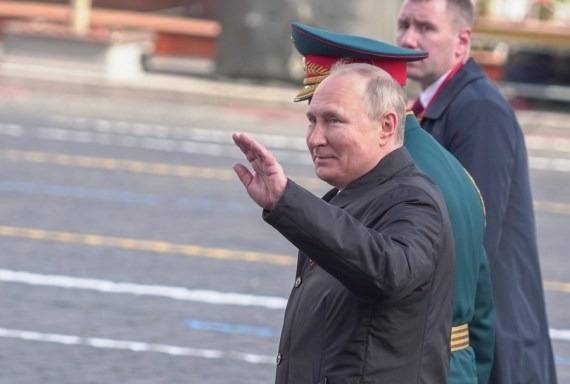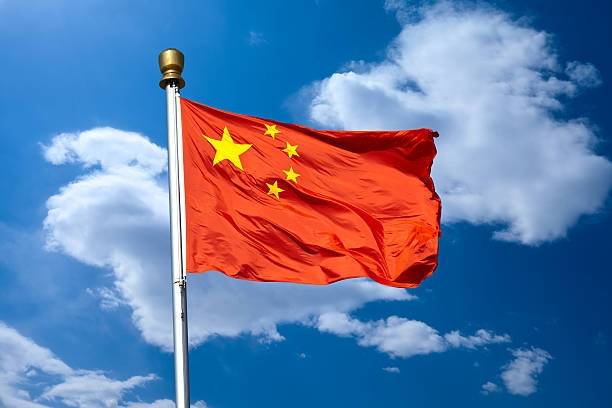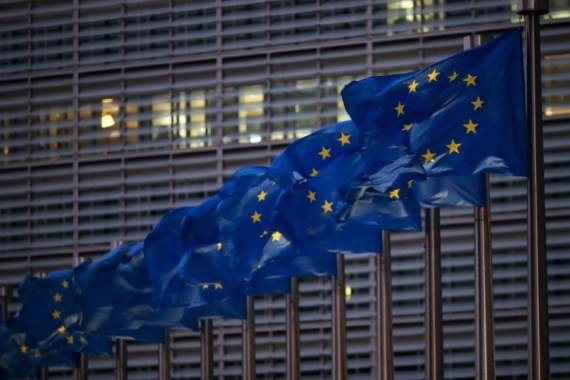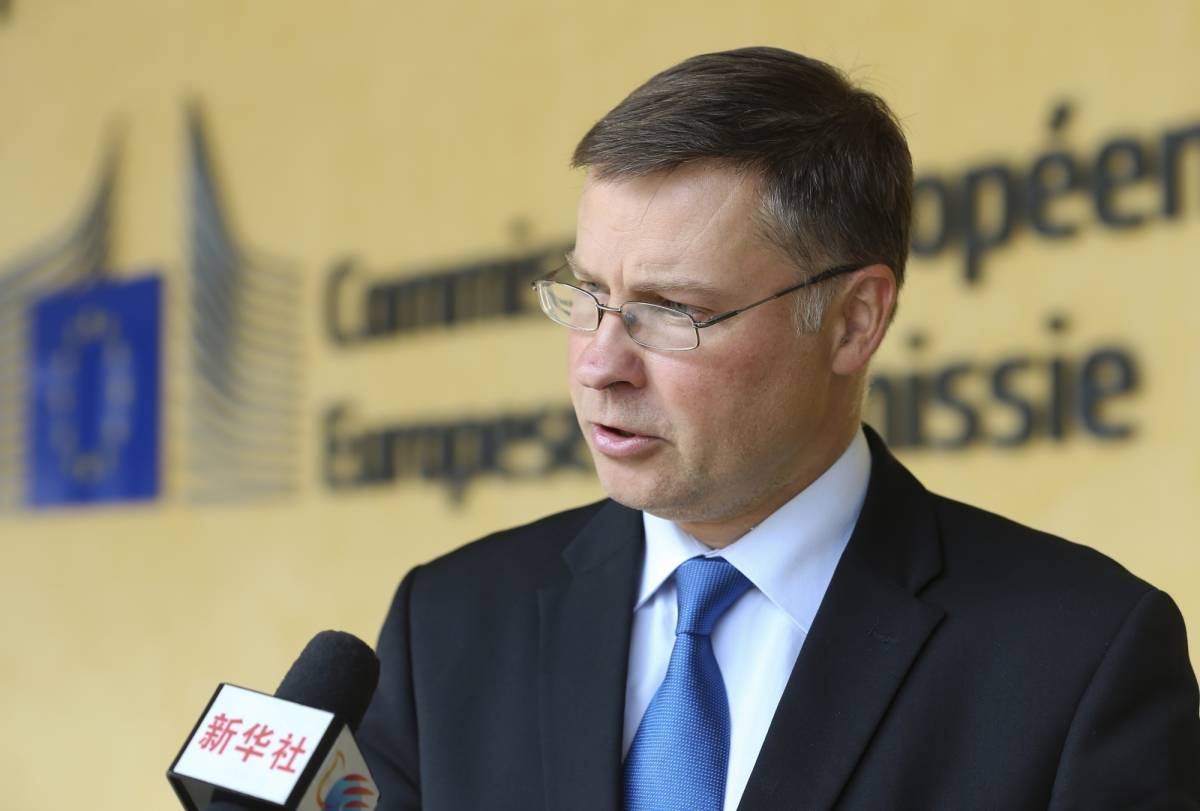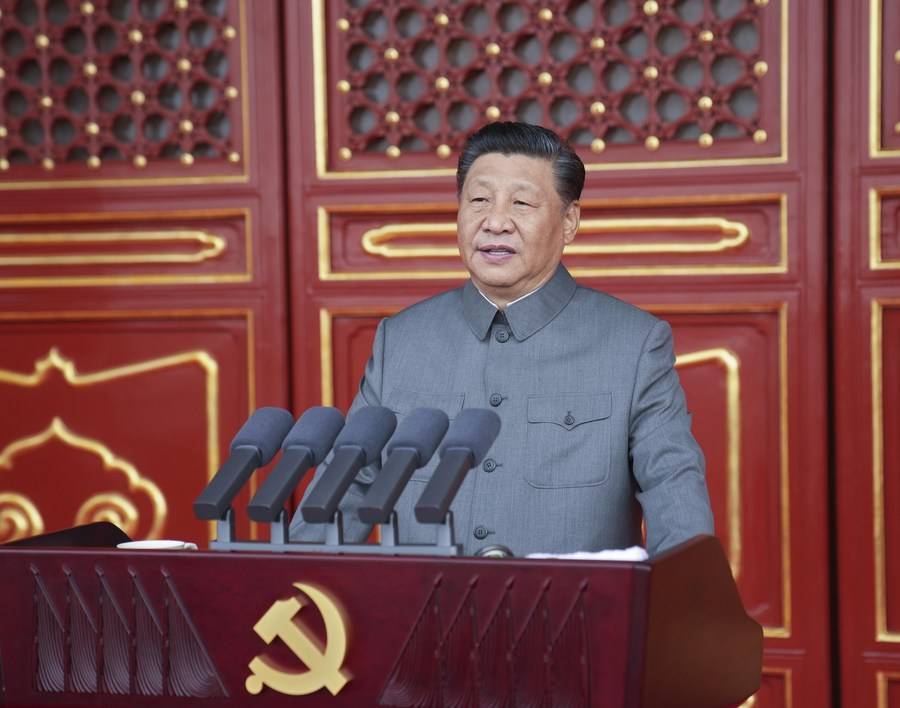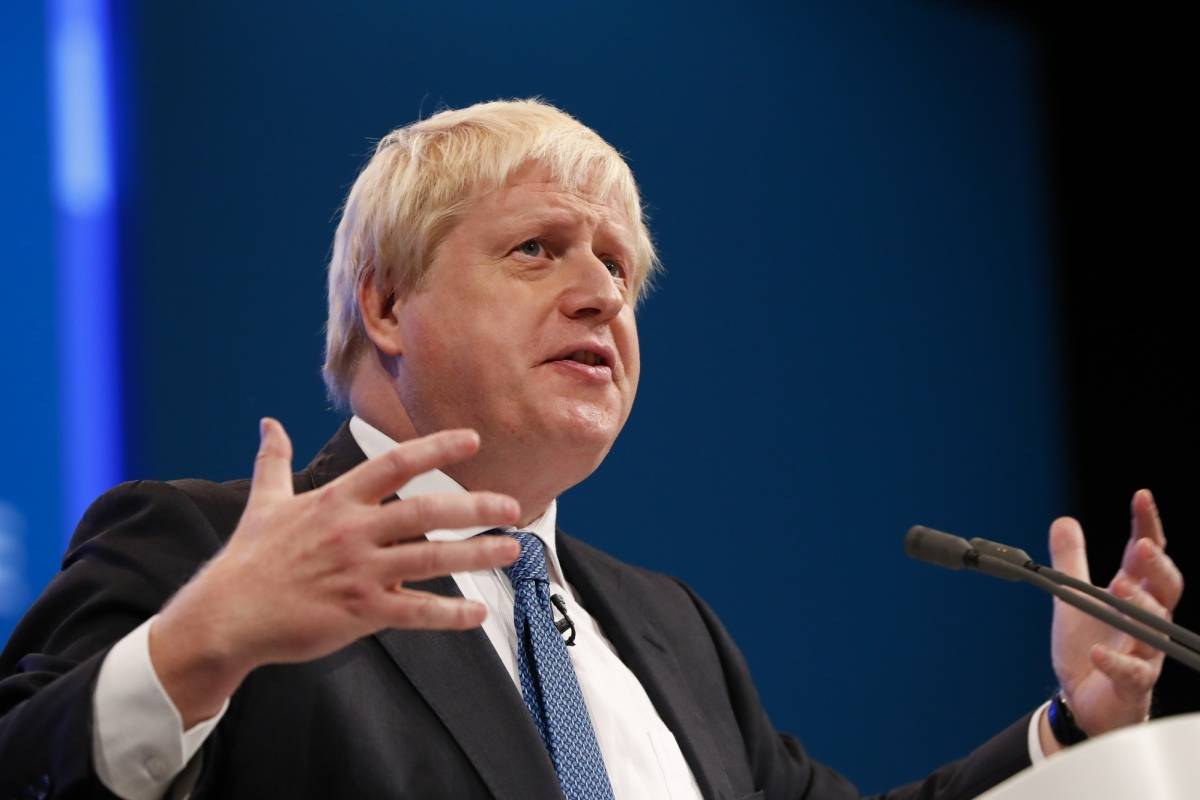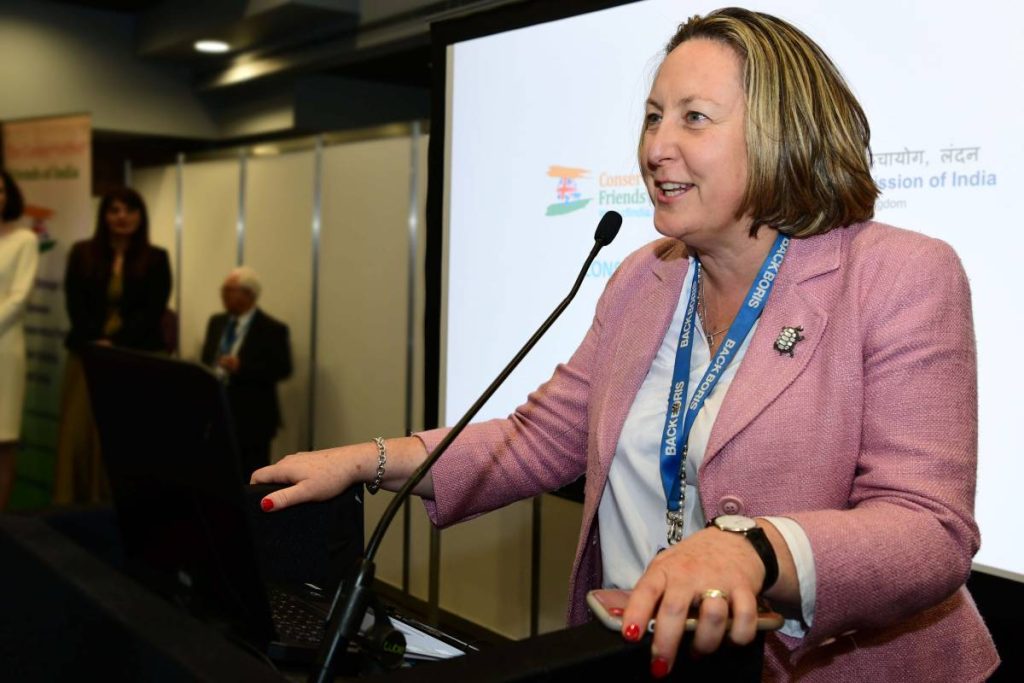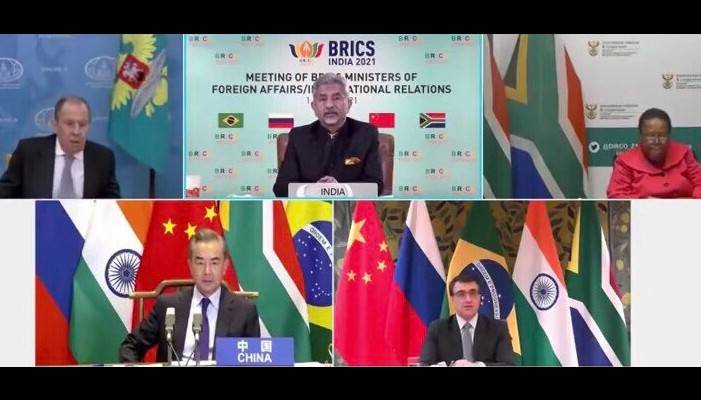Commerce Minister Piyush Goyal also cornered WTO for failing to protect the health of the people of poor nations during Covid-19 pandemic, reports India Daily Newsdesk
India talked tough in Geneva. Union Commerce and Industry Minister Piyush Goyal in his remarks at the closed-door session at the 12th ministerial conference touched on the spiralling food inflation and the need for the agreement on food stockholding by the developing countries.
Piyush Goyal said, “After the Bali Ministerial Decision in 2013, the General Council in 2014 mandated permanent solution on the issue of public foodstocks, which has already been delayed. It should be the topmost priority for 12th WTO ministerial meeting (MC12), before we move to new areas. Nothing is more important than this for the people of the world.”
Commerce Minister Piyush Goyal also cornered WTO for failing to protect the health of the people of poor nations during Covid-19 pandemic. He said, “The pandemic reinforced the importance of “One Earth One Health”, calling for global solidarity and collective action. My country ramped up supplies of medical products to provide medical and health items globally. Unfortunately, the WTO could not respond with alacrity. We have let down the people of the LDCs and developing countries. The rich countries need to introspect.”
Earlier on Sunday, India participated in the G33 Ministerial Meeting organised by Indonesia. At the meet, the Commerce Minister said, “We are fighting for developing countries and LDCs. They are always at the receiving end.” He mentioned the Uruguay agreement and how the developing world got a raw deal in the past.
Goyal told reporters that he discussed and put forward India’s point of view on food stocks, fisheries, agriculture and vaccines in meetings with WTO Director-General Ngozi Okonjo-Iweala, Trade Representative of the United States of America, Katherine Tai and South Africa Trade Minister Ebrahim Patel in Geneva.
He also emphasised that India will not buckle under any pressure. In reply to a question, he said, “There is no power on earth that can put pressure on today’s India. No one can pressurise today’s ‘Aatmanirbhar Bharat’. We can face any challenge. We don’t take any decision under pressure.”
India also cautioned the WTO about any agreement on curtailing subsidies in fisheries. Goyal said that we must not repeat mistakes of the past.
He continued, “Fishing by my country’s traditional fishermen and women is to address hunger, poverty, food and nutrition insecurity, which is largely sustenance fishing. Their right to life and livelihood cannot be curtailed in any manner.”
“On the contrary, those nations responsible for the depleted fish stock should assume responsibility, having exploited the oceans for far too long by giving subsidies. Fisheries are global public commons and should be shared equitably considering the past and being mindful of the future to strike the right balance on the principles of common but differentiated responsibility.”
“For food security and eradication of hunger, sustainable fishing is as important as agriculture, which is an important SDG goal. Let us not repeat the mistakes of the Uruguay round in Agriculture in a Fisheries agreement,” he added.
An important issue under negotiation at the WTO relates to the protection of India’s food grain procurement programme at Minimum Support Prices (MSP).
Such programmes involve the purchase from farmers at administered prices and are key to supporting the farmers and consumers in the country. WTO rules limit the subsidy that can be provided to such products being procured.
This issue is being negotiated at the WTO by the G-33 and the African Group which has come together along with the African, Caribbean and Pacific countries (ACP group) in submitting a proposal on a permanent solution to the issue of public stockholding for food security purposes on 31 May 2022.
India co-sponsored a G-33 proposal for a permanent solution on PSH for food security purposes at the WTO, on 15 September 2021, which had the co-sponsorship of 38 Members.
In the negotiations, improvements are being sought by developing countries over the ministerial decision adopted at the ninth ministerial conference of the WTO in Bali in December 2013 where members agreed to negotiate a permanent solution on the issue of public stockholding for food security purposes by the 11th Ministerial Conference of the WTO.
It was agreed that in the interim, until a permanent solution is reached, Members would exercise due restraint (commonly termed as ‘peace clause’) in raising disputes in respect of public stockholding programmes for food security purposes instituted before 7th December 2013, even if countries exceeded their permissible limits.
Consequent to the firm stand taken by India at the WTO, this peace clause was extended by a decision of the WTO General Council (GC) in November 2014 until a permanent solution was agreed and adopted.
Thus, it was ensured that the ‘peace clause’ would be available in perpetuity. At the Nairobi Ministerial Conference held in December 2015, WTO members agreed to engage constructively to negotiate a permanent solution.
India neither wants to link public stock holding (PSH) issue with other agriculture issues nor a work programme as negotiating a permanent solution has a standalone mandate at the WTO, the ministry said. (inputs from ANI)
ALSO READ-Russia may sever ties with WHO, WTO

